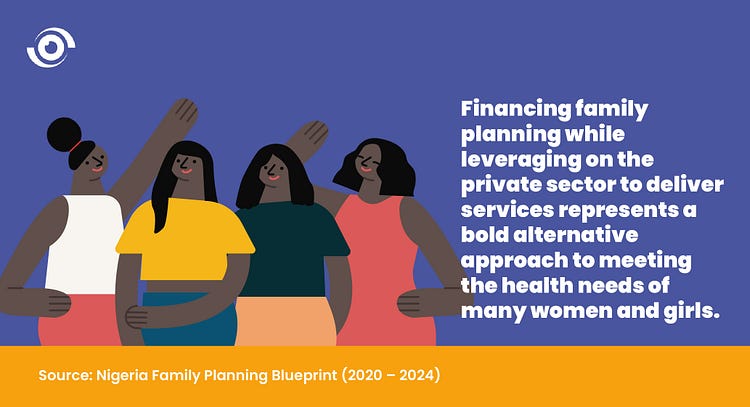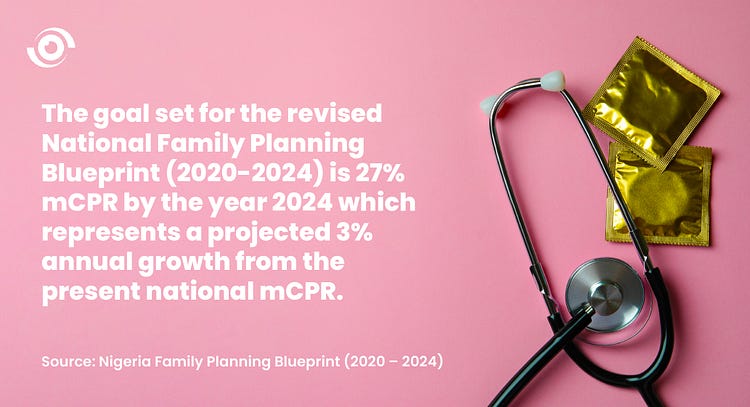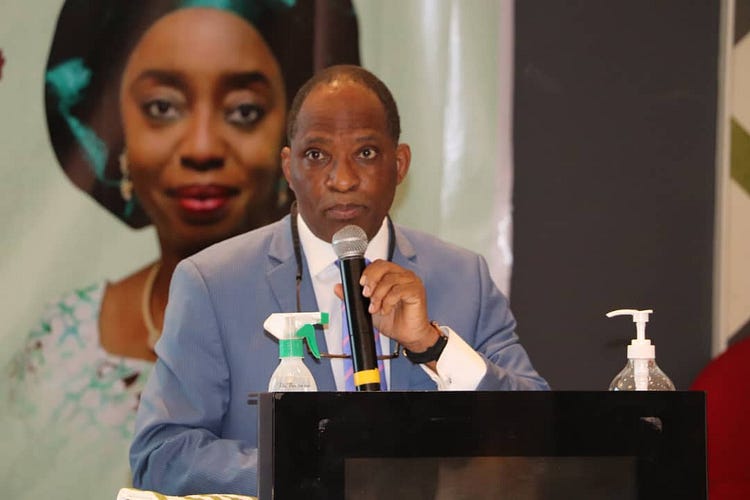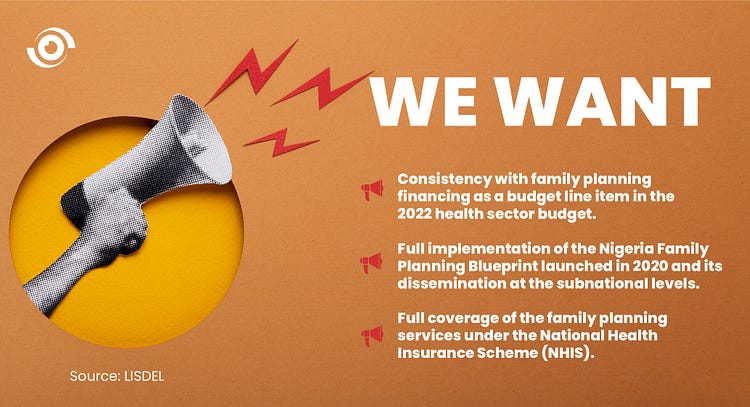By Alex Ehieme and Patience Adejo (Lead Writers)
The Nigeria Family Planning Blueprint (2020–2024) has a set objective of achieving a modern contraceptive prevalence rate of 27 per cent for women by 2024. In reality, according to the ‘2020 Statistical Report on Women and Men in Nigeria’ released in August by the National Bureau of Statistics, a little over 16 per cent of women used contraceptives and the prevalence rate for modern methods is 12 per cent. The report also revealed that over 83 per cent of women did not use any contraceptives in 2018, as well as in 2019 when Nigeria reduced its yearly budget for family planning by almost 90 per cent from N2.9bn to N300m; a directive that contradicted the country’s touted political and financial support for family planning.
World Contraception Day (WCD) is marked on September 26, every year, to recognise the rights of all couples and individuals to decide freely and responsibly on the number and spacing of their children. In Lagos State, the Ministry of Health in collaboration with the Alumni Association of the National Institute (AANI)-PACFaH@Scale project (PAS) project, the Post Pregnancy Family Planning project and other partners, organised a stakeholders’ forum to create more awareness, mobilise resources and to put family planning on the front burner of the state’s economic and development plans.

Attendees at the event themed ‘Family Planning in a New Lagos: A Catalytic Pillar for Female Empowerment and Socio-economic Development’, deliberated on issues surrounding family planning in the state. They discussed the need to reinforce the commitment of the private sector, health organisations, donors, and development partners among others and the need to improve family planning services for development purposes. Lack of funding, inadequate data, limited access to healthcare facilities, low uptake of modern contraceptive methods, low advocacy and lack of investment interest were some of the issues highlighted as factors affecting effective family planning.
Lagos State family planning agenda
Modern contraceptives are a crucial tool for women’s empowerment and significantly contributes to their socio-economic well-being, autonomy and ability to make their own decisions. During her keynote address, Dr. (Mrs) Claudiana Ibironke Sanwo-Olu, wife of the governor of Lagos State noted the growing Lagos population and its attendant challenges, which include the increasing rate of unemployment, growth of slums, poor health and education, “One effective tool for tackling these problems is for families to have the number of children they can cater for,” she said.

According to Sanwo-Olu, despite the benefits of family planning, it was disheartening that for many women, the right to choose when and whether to have children was being hindered by lack of access to safe contraceptives. The socio-economic benefits of family planning cannot be over-emphasised as it leads to female empowerment, “I therefore call on all stakeholders to join forces and chart the course towards effective funding of family planning services in Lagos,” she added.
Need for family planning
In his presentation, the Lagos State Commissioner for Health, Prof Akin Abayomi said informed and correct use of family planning promotes child welfare and prevents morbidity. The state increased the use of modern contraceptives from 18 per cent to 21 per cent, averting about 167,000 unintended pregnancies, 59,000 abortions and 1,100 maternal deaths. “We recognise that 56 per cent of our residents patronise the private sector. We also know that a significant number of our citizens use traditional healthcare methods. It is important that we take both the private sector and the traditional medical facilities along with us in this discussion,” he said.
In a goodwill message, the representative of the United Nations Population Fund, Omolaso Omosehin said, “The use of family planning methods by women could reduce the chances of death from pregnancy-related causes by up to 30 per cent.” She argued that investment in family planning could transform the economies of households, communities and countries, adding, “Family planning has been identified as one of the Sustainable Development Goal strategies. The progress made in family planning accelerates the achievements for SDGs 1, 2, 4 and 10, and specially could ensure healthier lives and promote the wellbeing of all ages. It could help the UN achieve gender equality and empower all women by 2030.”

Efforts to improve family planning
Lagos State is taking giant strides to achieve the 74 per cent target of contraception assigned by the Federal Ministry of Health towards achieving the national contraceptive goal, Dr. Taiwo Johnson, Director, Private Sector, Post Pregnancy Family Planning project, noted. She said that while a lot has been done, more grounds still needed to be covered, especially with the growing population of Lagos caused by migration from different parts of the country and the simultaneous reduction in donor funding, service disruption as a result of the COVID-19 pandemic and reduction in national funding for family planning.
“We are yet to be exposed to quality health information and services. All these parameters may limit the access to quality healthcare, which remains a critical issue in Lagos, as the state strives to ensure Universal Health Coverage to all its citizens,” she said.
Traditional versus modern contraception
Many people tend to use the traditional method of contraception, said the Vice Chancellor, University of Medical Sciences, Ondo State, Prof Adesegun Fatusi. He said a study carried out by the University of Medical Sciences in January 2020 indicated that about 11 per cent of the people who do not want to have children still do not use contraception, compared to 19 per cent in 2014. He added that the private sector was providing services to about 69 per cent of Lagosians noting that the greatest players in the private sector were chemists. “There is a huge gap between what private health facilities can do and what they are doing. This is due to low patronage and low return on investment in family planning,” he said.

On abortion, Fatusi revealed that about 56 per cent unintended pregnancies in Nigeria end in abortion, about two-third of which were unsafe. “The consequences have been that about half a million women in Nigeria have abortion complications every year. However, with adequate investment in family planning, these statistics can be reversed,” he added.
The Project Director, AANI-PACFaH@Scale project, Major General Shina Ogunbiyi, said that Lagos has taken the lead in this regard and pledged to improve family health, noting the Commissioner for Health’s pledge to take particular interest in family planning issues after COVID-19. “If you empower the family, you are empowering a community and when you empower a community, you are also empowering the populace. I think that by all intents and deeds, Lagos has taken the bull by the horn, and is ready to make more impact in family planning because of the result, not only on the woman but also on the community. This involves the socio-economic welfare and security of the community concerned,” he said.
Family Planning and the 2022 budget
Issues regarding family planning are not peculiar to Lagos State as Nigeria’s population is growing rapidly. Reacting to the recently released 2022 budget which had no clear line item for family planning, on the 14th of October, PACFaH@Scale coalition members called a press conference advocating to the Federal Government for the need to reintroduce the family planning line item into the proposed 2022 health budget.

According to the press release, there appeared to be no specific information or plan to address family planning in 2022 as the entire budget had no specific budget line item for family planning, child spacing, provision of contraceptives or public awareness campaigns on child spacing. The coalition made up of Planned Parenthood Federation of Nigeria, BudgiT, Medical Women Association of Nigeria and others has asked that the federal government, reintroduce the missing family planning line item in the proposed 2022 health budget, ensure full implementation of the Nigeria Family Planning Blueprint launched in 2020 and ensure full coverage of the family planning services under the National Health Insurance Scheme (NHIS).


